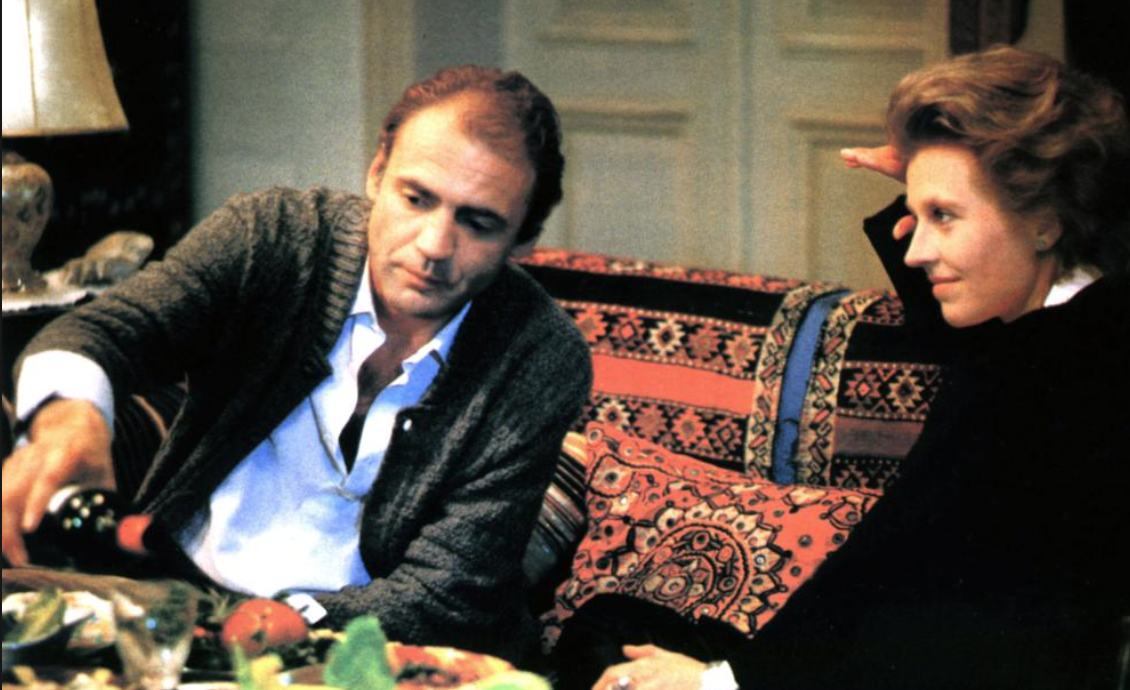Brad Anderson‘s Beirut (Bleecker Street, 4.11) is a gripping, finely crafted adult war drama of the highest order — exactly the kind of smart, disciplined thriller (91% Rotten Tomatoes rating) that I live for.
Set in Lebanon’s war-torn capital in the early ’80s, it’s about a former U.S. diplomat (Jon Hamm) returning to Beirut to help save a kidnapped friend from way back. All kinds of danger, intrigue, suspicion. My idea of a truly satisfying, adult-level war drama. Hamm savors his meatiest, best-written role since his Don Draper days in Mad Men, and gives the best big-screen performance of his life. Really.
Earlier today I was speaking with Beirut’s producer-writer Tony Gilroy, the legendary director-screenwriter (Michael Clayton, Duplicity, The Bourne Legacy) who arguably saved Rogue One from disaster by coming in with a big rewrite and then directing new portions.
Halfway through our chat Gilroy mentioned Volker Schlondorff‘s Circle of Deceit (aka Die Fälschung), a 1981 drama that was shot in Beirut as the Lebanese civil war was raging blocks away. He insisted that I see it at the earliest opportunity.
Gilroy’s first viewing of Circle happened in the early ’90s, when he was working on the Beirut script (a task that took him a full year) for Ted Field‘s Interscope. He says he spoke to the projectionist after Circle ended, and that the projectionist said “what was that?”
The film costars Hanna Schygulla as Ganz’s temporary lover and Jerzy Skolimowski (director of Deep End, Moonlighting, The Shout) as his journalistic ally.
I rented a standard-definition version of Circle of Deceit on Amazon, and plan on watching it by the weekend.
Circle follows a German journalist (Bruno Ganz) sent to Beirut to report on the Lebanese Civil War. The conflict began in ’75, took 120,00 lives and generated an exodus of a million residents, and didn’t end until ’90. Circle was filmed in 1980 “under remarkable conditions with its crew confined to ‘safe’ portions of Beirut while the fighting went on elsewhere, but with ubiquitous evidence of real warfare everywhere.”
The New York Times described it as “a balanced, thoughtful, extremely moving vision of wartime tragedy.”
In her 2.11.82 review, Times critic Janet MaslincalledCircle of Deceit “a balanced, thoughtful, extremely moving vision of wartime tragedy…it may have begun as a story about Georg, his barren marriage, his empty desire for change and the ways in which a war zone reflects his inner condition…but it turned into something much larger. Georg is almost a minor figure when viewed against the backdrop [that] Schlondorff has created: a war tableau so finely observed, and so realistically drawn, that it may be a continual effort for the audience to remember this film is fiction.”

